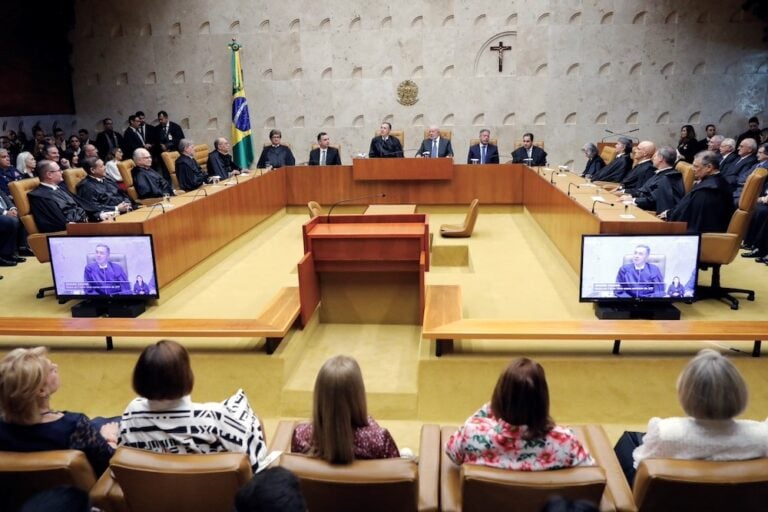Enock Cavalcanti and Adriana Vandoni were forbidden by Judge Pedro Sakamoto from voicing personal opinions on a court case against politician José Riva.
(ABRAJI/IFEX) – Bloggers Enock Cavalcanti and Adriana Vandoni, from the Brazilian State of Mato Grosso (MT), were forbidden by Judge Pedro Sakamoto from commenting on injunctions issued by the prosecution against politician José Riva. Riva is the president of Mato Grosso’s Legislative Assembly and a defendant in more than one hundred lawsuits regarding an alleged scheme of embezzlement of up to R$80 million (approx. US$46 million).
The judge also decreed that the “offensive” texts be deleted from Cavalcanti’s blog. The journalists will have to pay a daily fine of R$1,000 (approx. US$570) if they disobey the order.
Vandoni and Cavalcanti, who reported on an accusation by the Federal Public Ministry (Ministério Público Federal, MPF) against Riva in their blogs, are not allowed to voice any opinion until the legal process of Riva’s case is complete. In one of her subsequent texts, Vandoni ironically remarked that this would make it possible for her to publish her opinion “in about 25 years”. In spite of facing more than 119 lawsuits, Riva has not been convicted in a single case. “I feel outraged, tied,” said the blogger, who intends to appeal the decision.
The legal process stems back to MPF’s accusation that Riva and his political ally, Humberto Melo Bosaipo, embezzled R$1,661,761.34 (approx. US$959,170) from the Legislative Assembly between September and December 2001 using the “dummy” corporation K.A. Sardinha Publicidade e Eventos.
Vandoni says she witnessed Riva’s influence in her region right after the judge’s decision. “The support I’ve been receiving comes essentially from outside (the area). The smaller the town, the more tied to the public power it is.”
Nevertheless, she claims to be satisfied with the response the case has been obtaining. “I see the people’s reaction and feel comforted,” the blogger said. Besides receiving support from a number of bloggers across the country, the case has also had repercussions in the Senate, with the speech from the representative of the State of Amazonas, Arthur Virgílio, who said, “It is all that they need, the wrongdoers, for the press to be silent.”
According to Vandoni, in Latin American countries such as Venezuela or Bolivia, the obstruction of freedom of speech is prevalent. However, in her opinion the Brazilian situation is different. “This action by a member of parliament could be an indication of the beginning of that in this country, but, judging by the people’s reaction, I can see that this is not going to stick here.”


